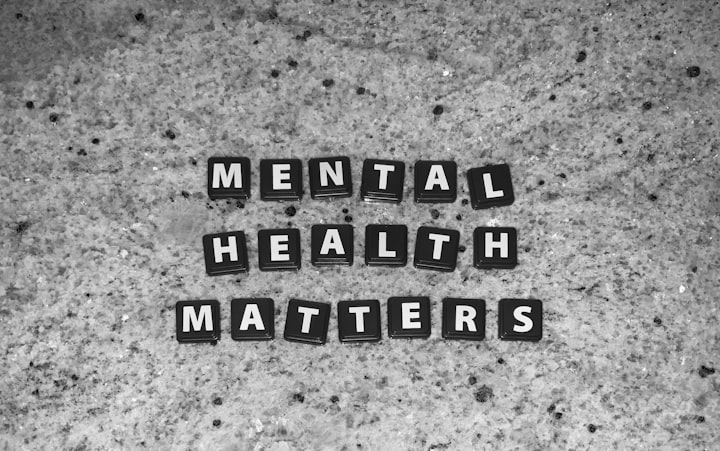Myths about sleep (Part1): The mystery of sleep
Myths about sleep debunked

Despite the fact that we spend one-third of our lives sleeping, sleep still holds many mysteries. Scientists are working on the details, but the marvel of slumber is far more complex than it appears.
Many animals require some form of sleep, and if a behavior has been preserved across many species, it must be important.
After all, lying unconscious for hours does not appear to be the safest activity for a wild animal. So whatever happens while sleeping is critical.
Sleep aids in the maintenance of physical and mental health. Sleep deprivation has been linked to a variety of health problems, including diabetes, depression, stroke, and others.
Sleep, on the other hand, is inextricably linked to the ethereal: dreams, altered states, and emotions.
Most common myths about sleep include:-
1. Your brain shuts down while you sleep.
Fortunately, our brains do not stop working while we sleep. Because vital functions such as breathing are required, our brains can never completely shut down. In fact, brain wave activity during rapid eye movement (REM) sleep, when most dreams occur, is similar to that of wakefulness.
Surprisingly, despite the high level of activity, waking a sleeper during REM sleep is the most difficult task. This is why this sleep stage is also known as paradoxical sleep.
Our white and gray matter are very active while we sleep. After we have fallen asleep, our brain goes through three stages of non-REM sleep, followed by one stage of REM sleep. The brain exhibits distinct brain wave patterns and neuronal activity during each of the four stages. This four-stage cycle occurs five or six times during a full night's sleep.
While some areas of the brain relax during non-REM sleep, others become active. The thalamus is an intriguing case. This region of the brain serves as a relay station for our senses. It receives the first impressions of what we see, hear, and feel. Sensory signals are then sent to the cerebral cortex for information processing. The thalamus remains relatively quiet during non-REM sleep but becomes active during REM sleep and sends the sights and sounds of our dreams to the cerebral cortex.
2. You slept well if you remember your dream.
Most of us dream every night, but we rarely remember them. Dreams occur primarily during REM sleep, but they are quickly forgotten. Only when a person awakens during or just after REM sleep does the memory of a dream remain intact.
According to a reliable source, certain neurons active during REM sleep may actively suppress dream memories. These neurons produce melanin-concentrating hormone (MCH), which aids in the regulation of sleep. MCH also suppresses the hippocampus, a critical brain region for memory storage. According to Thomas Kilduff, Ph.D., "Because dreams are thought to occur primarily during REM sleep, the sleep stage when the MCH cells turn on, activation of these cells may prevent the content of a dream from being stored in the hippocampus — as a result, the dream is quickly forgotten."
One study takes a different approach to the question. The researchers enlisted the help of people who have a habit of remembering their dreams on most nights. They discovered that these people awoke more frequently during the night than people who remembered their dreams less frequently. This suggests that people who frequently recall their dreams may sleep poorly.
In short, remembering a dream is not a sign of good sleep. It's just that you happened to wake up at the right time to remember it.
3. Never disturb a sleepwalker.
According to popular belief, if you wake a sleepwalker, they may suffer a heart attack or even die. This is incorrect.
Wakening a sleepwalker, on the other hand, can cause confusion and, in some cases, fear. Some sleepwalkers can be aggressive, so be cautious if you wake them.
Sleepwalkers can injure themselves when they navigate the house with their eyes closed. As a result, the best course of action is to try to entice them back to the safety of their bed.
According to the National Health Service (NHS) website in the United Kingdom, "the best thing to do if you see someone sleepwalking is to make sure they're safe."
The NHS website also states that once the sleepwalker has returned to sleep and the episode has ended, it is best to gently awaken them before allowing them to sleep again. This could "prevent another episode from occurring in the same deep-sleep cycle".
4. Alcohol ensures a restful night's sleep
Alcohol shortens the time required to fall asleep. Someone who has consumed alcohol may be more difficult to awaken. As a result, many people believe it has a positive effect on sleep in general. This is not correct. Sleeping under the influence of alcohol has a lower quality than sleeping without it.
To feel refreshed when we wake up, our brain must go through the previously mentioned highly orchestrated series of phases and cycles. This series of repetitions is thrown off by alcohol.
REM sleep reduction in the first part of sleep is significant after alcohol consumption. At moderate and high doses, the majority of studies show a decrease in total night REM sleep percentage.
Another study on the relationship between drugs and sleep found that self-reported sleep problems are highly prevalent among alcohol users, with rates of clinical insomnia ranging from 35% to 70%.
To summarize, while alcohol causes you to fall asleep faster, the sleep you get will be less refreshing.
5. Cheese and other foods
This is an old myth that most Westerners have heard. Although widely accepted, eating cheese before bedtime demonstrates that it is not universal.
A large meal just before bed, whether it contains cheese or not, can cause indigestion or heartburn, which can disrupt sleep.
If your sleep is disrupted by an active gut, you will be more likely to remember any dreams you had. As previously stated, people forget dreams almost as quickly as they form — unless you wake up in the middle of one, you are unlikely to recall it. Furthermore, if your stomach is upset, you are more likely to have a bad dream.
The type of meal eaten before dinner may also make a difference. According to Dr. William Kormos, Editor in Chief of Harvard Men's Health Watch, "Eating a large meal, particularly one high in carbohydrates, may cause night sweats because the body generates heat while metabolizing the food."
Again, this is likely to disrupt sleep, increase wakefulness, and thus increase the likelihood of remembering dreams.
The origins of the cheese/nightmare myth are unknown, but the fact that cheese boards are usually served at the end of a large meal may provide some insight. Some believe the origins of the cheese myth may be found in ancient legends.
Another myth is that certain foods, such as milk, cheese, and turkey, can help you fall asleep. This is due to the presence of an amino acid known as tryptophan.
Tryptophan is required for the body to produce serotonin, which is required for the production of melatonin, a hormone that regulates sleep.
As a result, foods high in tryptophan may help you sleep. The most common of these myths is that eating Thanksgiving turkey makes you sleepy after lunch because it contains tryptophan.
However, studies on tryptophan consumption have not found a significant effect on sleep. Furthermore, the levels of this acid in a serving of cheese or turkey are insufficient to make a difference.
The bottom line.
Sleep is still riddled with mysteries. We can only find more answers through science and research. However, as this article explains, we now have data to disprove many of the most deeply ingrained myths.
For the time being, the best advice is to avoid late-night meals, drink less alcohol, and be patient with sleepwalkers.
About the Creator
Willie Wun
I am a senior who is very keen on health and longevity issues and would like to share such knowledge with whoever is interested in these areas. Please SUBSCRIBE if you find the information useful and I can be motivated to share them daily






Comments
There are no comments for this story
Be the first to respond and start the conversation.